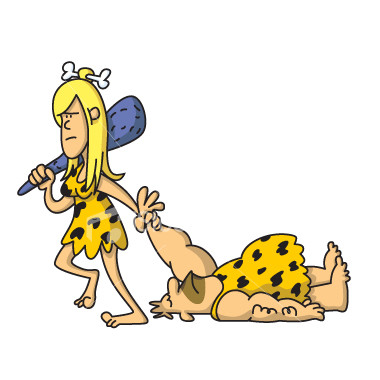Okay, technically, this concerns females before the existence of humans, but at least one species of primate that may have evolved into humans can turn one gender-based assumption on its head: females traveled the land in search of good mates, leaving the males at home. This conclusion was drawn after studying minerals in the fossils of teeth, which revealed that females of the species had ended up in a location far from their birthplace. This was most likely related to the females wanting to prevent inbreeding. Always a good idea.
According to the study that appeared in the journal Nature this week, 19 teeth were studied from two different species: Australopithecus africanus, a possible human ancestor from about 2.2 million years ago and Paranthropus robustus, who were not direct ancestors, but could have been not-too-distant relatives. In the smaller teeth, researchers found the mineral strontium, the appearance of which varies among the African landscape. Strontium was not found in the larger teeth. It was assumed that the smaller teeth belonged to females and the larger to males, in which case the females acquired this element by changing landscapes.
Some in the community are skeptical because of the small size of the sample, but those involved believe they’ve found a difference in gender roles among this species, which is also said to have exhibited mating and social behaviors more similar to humans than to gorillas. Paleoanthropologist Sandi Copeland from the University of Colorado says that the dispersal of the females rather than the males had evolutionary benefits.
In less evolved animals, it makes evolutionary sense for the male to wander and impregnate many females and show might. In this case, the female moving could show that males in a community have bonded and cooperated, maybe for common defense. So it makes sense for the men to settle, while the females disperse, Copeland said.
And why mate with the same group of males and increase the chance of inbreeding? Smart ladies, these were.
(ABC News via Yahoo! via Jezebel)








Published: Jun 4, 2011 03:59 pm